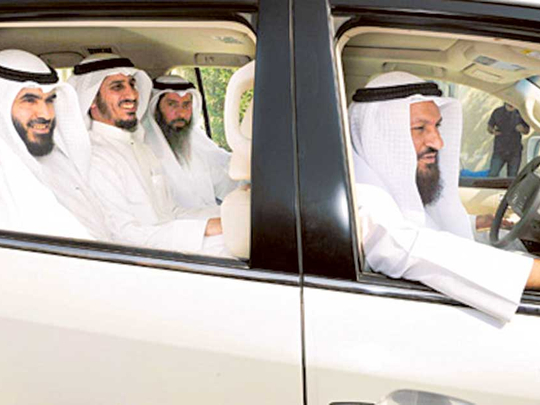
Manama: Kuwait’s parliamentary elections next month are likely to be among the mostly hotly contested in the northern Arabian Gulf country’s history after 53 former lawmakers, including influential members of the opposition, have signed up their names as candidates.
Four days into the candidates’ registration process that will remain open until Friday, 32 members of the outgoing parliament elected in 2013 have registered their names hoping for renewing their membership. However, they will have to do with 12 MPs from the parliament elected in 2012 and dissolved by the Constitutional Court, the country’s top court, and with nine lawmakers elected during other legislative terms.
In 2013, the opposition, a combination of Islamists and tribal representatives, boycotted the elections to protest against the amendment of the 2006 Electoral Law that slashed the number of candidates a voter could choose from four to one.
The government argued that the amendment brought the voting process more into line with international standards while the opposition claimed that the move meant to elect a compliant parliament and took the case to the Constitutional Court.
The court rejected the challenge and the elections were held, but without the participation of the opposition.
However, following the dissolving of the parliament this month and the call for new elections on November 26, most members of the opposition said they would end their boycott and would run for seats.
“Our participation following the boycott is in fact a response to the call of the public interests,” Mohammad Hayef Al Mutairi, an Islamist former lawmaker, said. “The opposition was alarmed by the failures of the parliament and government. Our boycott was a special message at the time, and we now must focus on the present time. Our ambition is to motivate the voters and competent people to be involved in the elections,” he said, quoted by Kuwaiti daily Al Rai on Sunday.
Osama Al Shaheen, another former MP, said that the reason for the boycott has ended.
“There is no need to keep the boycott now, but I do respect whoever thinks otherwise,” he said.
Waleed Al Tabtabai, an independent former MP, said he was confident he and other Islamists would be elected next month.
“We will return to the parliament, and those who are unhappy about it will be crying,” he said.
“As soon as we settle in, we will present a 10-point document that includes reinstating revoked citizenships, rejecting the horrible laws that had been passed and protecting the wallets of Kuwaiti citizens.”
The document will be adopted by the opposition lawmakers and by other who will most likely join the bloc, he said.
“We expect that we will form a strong bloc comprising 25 lawmakers,” he added. The parliament has 50 members.
Reports in Kuwait said they expected that one third of the members of the dissolved parliament would not be re-elected.
After four days of registration, 199 candidates, including six women, have submitted their applications.
No woman came forward on Wednesday, the first day of the process, four signed up on Thursday, one on Friday and one on Saturday.
For the men, 71 handed in their applications on the first day, 57 on the second day, 19 on the third and 46 on the fourth.










